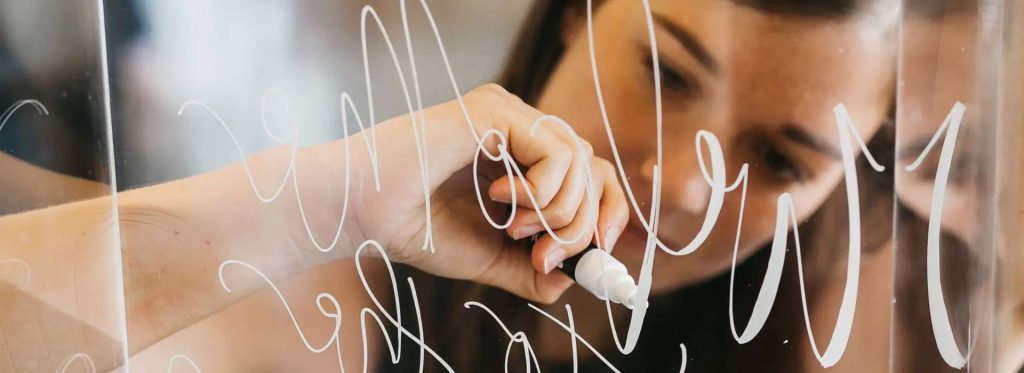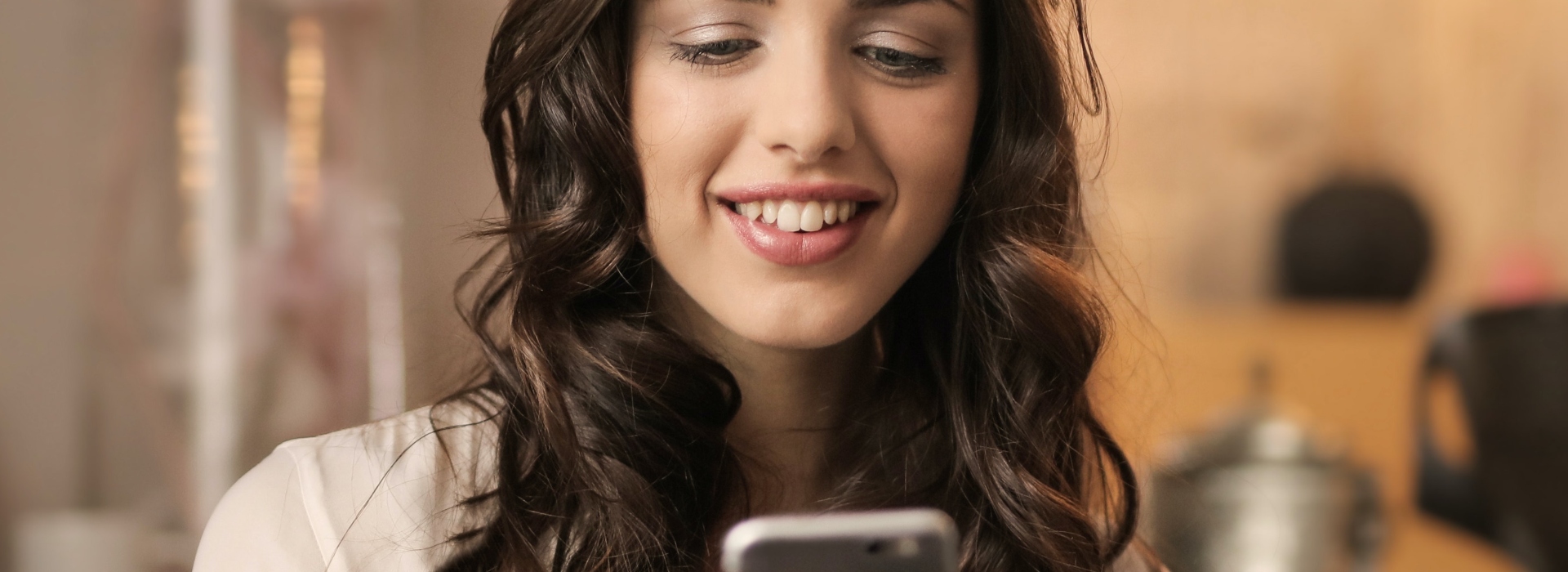Photo by Kailey Watson Photography
You’re a remarkably talented, driven wedding business CEO. But when it comes time to toot your own horn in public? You feel tongue-tied, or embarrassed, or like you’re not worthy. It’s time to shake off the writer’s block and take control of one of the most important (but also one of the most intimidating) parts of your website: the About page.
Include These 7 Things on Your About Page
As a website copywriter who specializes in the wedding industry, this is the page I get the most questions about. I’ve pored through About pages (ones I’ve written and others, too) and have found all the great ones have seven things in common.
They all include:
• Your personality
• Your credentials
• What it’s like working with you
• A photo of you
• Information about the business
• Social proof
• Call to action
Your Personality
People are coming to your About page because they want to learn about you; they want to know who you are before they decide to have you contribute to their wedding day. Capturing your personality on the page can be challenging, but get it right and it’s one of the best ways to create a relationship between you and a prospective client before they even meet you.
Show off what makes you, you, by answering these questions and incorporating the answers into your page:
If they made a movie about your life, what are some things the actor would say or do to portray you authentically?
Do you have any catch phrases or “isms” — things you say or do often?
What three emojis do you use the most and why?
Your Credentials
Explaining your credentials is an easy way to build trust with the reader. Try to weave your qualifications into the copy naturally to show off your skills without it sounding like a resume. Start by asking yourself these questions:
What kind of experience do you have that makes you qualified to do the work you do?
Have you won awards, received accolades or been featured in the press?
Do you have any born-this-way talents related to your industry that make you stand out?
What It’s Like Working with You
Your About page should balance what couples want to know about you with what you want to tell them. This ingredient accomplishes both — it might address some logistical questions about your process, or you could use this space to explain your unique aesthetic or approach to your work. To get yourself started, answer these questions:
How do you run your business? Conduct meetings? Talk with customers?
What processes do you follow that customers might have questions about?
Do you have any ground rules, like office hours or texting policies?
A Photo Of You
Your words and visuals should tell the same story, so even though a photo isn’t a piece of copywriting, it’s important you include one of the About page. People want to buy from people, and a photo of you is a way to humanize your business. As you look through your images, consider these questions:
Do you have any photos that show off your personality?
Do you have any behind-the-scenes images, such as pictures of you working in your profession, or even a photo of you on your wedding day?
Do you have other images that depict you, such as a drawing or painting, that you could use instead of a photograph?
Information About the Business
Most of the About page is focused on you, the founder, but you should also include the story of your business on the page. Consider weaving the answers to these questions into your copy:
What’s the meaning behind your business name?
What made you fall in love with your industry?
What values do you subscribe to?
Social Proof
So far, your About page has been you telling prospective couples why your wedding business is great. But they’ll probably want to hear that from someone else, too. Including social proof — like testimonials, case studies, and reviews — is an easy way to reassure couples that you’re the perfect vendor for them. Ask yourself these questions to gather the right social proof for this page:
What value do couples get from working with you? Do you have any testimonials that specifically mention that value?
What product or service do you want to sell the most? Which case study shows off that product or service the best?
Do you have any logos from blogs, podcasts or media outlets that you can include on the page?
Call To Action
Every page on your website should end with a call to action, also known as a CTA. Most CTAs have three parts: a header to grab the reader’s attention, one or two sentences of body copy to explain, and then a button with CTA copy that compels the reader to act. These components should harmonize to make it clear where a user will land when they click on the button. Here are some questions to get you started:
Where do you want readers to go next?
What benefit will a reader receive by going to that page?
What’s a strong verb I can include that will compel readers to click?
Get a Copy Pro to Check Your Work
The beauty of copywriting is that it’s creative; there are infinite ways to write your About page, and as long as these seven ingredients are included, there’s no wrong way to go about it. Still, wouldn’t it be nice if someone who knows what they’re doing could confirm you did it right? I’d love to help. Once you’ve added these seven ingredients to your page, submit a link to me at lteditorial.com/free-review. I’ll give you my feedback and some pointers to take your About page from good to great for free — no strings attached.
—
Taylor Griffith is the owner of Lemon Tree Editorial. As a website copywriter for wedding pros, Taylor helps wedding vendors embrace their own individuality on their websites and respect the individuality of their couples through the use of inclusive language. You can find her on Instagram @tmgriffi or on the web at www.lteditorial.com.








